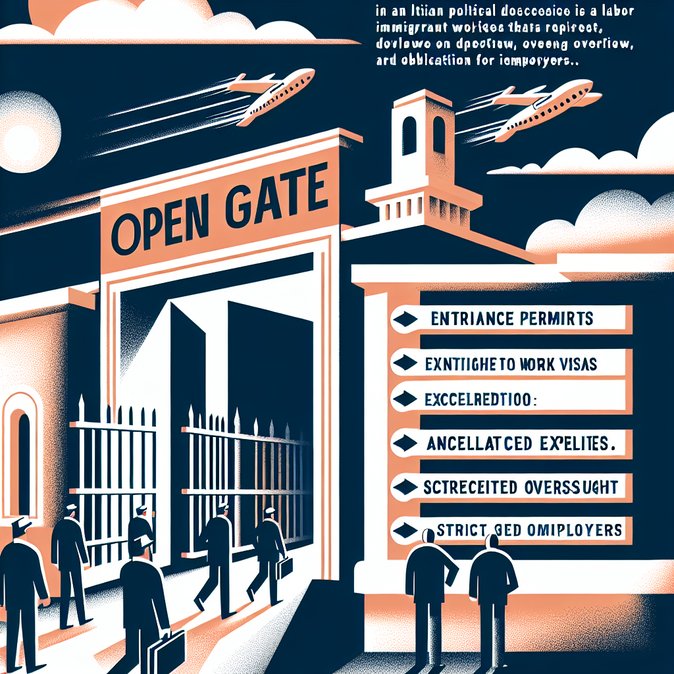
Speaking on the evening political talk-show “4 di Sera” on 24 November 2025, Forza Italia deputy vice-secretary Stefano Benigni struck a dual note on Italy’s immigration model. Benigni reiterated his party’s support for the new multi-year Decreto Flussi, which will admit almost half a million non-EU workers between 2026 and 2028, arguing that “Italy needs young foreign labour willing to integrate and respect our rules.”
At the same time, the MP cited prison-service statistics showing a persistent over-representation of non-EU nationals in Italy’s penitentiaries and argued for “absolute intolerance” toward foreigners who commit crimes. Benigni linked the issue to public perceptions of insecurity and to Prime Minister Giorgia Meloni’s pledge to tighten expulsions of repeat offenders.
![Forza Italia MP Calls for ‘Zero-Tolerance’ Toward Criminal Migrants While Backing Regular Immigration]()
Policy analysts note that Benigni’s comments come as Parliament begins debating enabling decrees that will implement the 2026-2028 quotas, including faster repatriation procedures and mandatory language courses for incoming workers. Business associations such as Confagricoltura and Assolavoro have welcomed the labour-market opening but warn that reputational narratives linking migration to crime could deter much-needed seasonal recruits in agriculture, hospitality and elder care.
For global-mobility managers the key takeaway is that broad political consensus still backs large legal inflows, yet background-check scrutiny and post-arrival monitoring are likely to tighten. Companies sponsoring work permits should be prepared for extra due-diligence questions on accommodation, training and integration support.
At the same time, the MP cited prison-service statistics showing a persistent over-representation of non-EU nationals in Italy’s penitentiaries and argued for “absolute intolerance” toward foreigners who commit crimes. Benigni linked the issue to public perceptions of insecurity and to Prime Minister Giorgia Meloni’s pledge to tighten expulsions of repeat offenders.

Policy analysts note that Benigni’s comments come as Parliament begins debating enabling decrees that will implement the 2026-2028 quotas, including faster repatriation procedures and mandatory language courses for incoming workers. Business associations such as Confagricoltura and Assolavoro have welcomed the labour-market opening but warn that reputational narratives linking migration to crime could deter much-needed seasonal recruits in agriculture, hospitality and elder care.
For global-mobility managers the key takeaway is that broad political consensus still backs large legal inflows, yet background-check scrutiny and post-arrival monitoring are likely to tighten. Companies sponsoring work permits should be prepared for extra due-diligence questions on accommodation, training and integration support.


